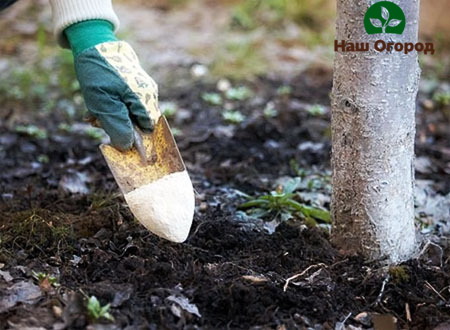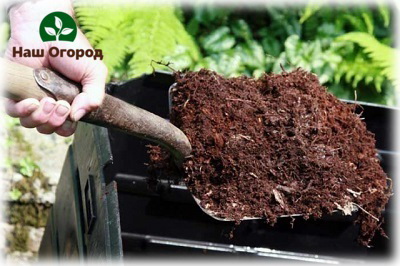We fertilize the soil correctly in the spring
Content:
If you are not yet an experienced gardener, but are just starting your journey towards becoming an experienced summer resident, then an article on how to care for a garden in spring and what kind of spring soil fertilization is best for your garden will come in handy.
In order to grow a good rich harvest by autumn, you need to start fertilizing the soil for future beds in the spring. And for this, in turn, it is necessary to choose the right fertilizers and in the right proportions. In this case, it is worth considering the needs of the plants that you want to see in your summer cottage.
Spring fertilization of the soil: valuable advice
Inveterate gardeners begin to fertilize the soil immediately, as soon as the process of snow melting is completed. There are a number of gardeners who are so eager for a quick harvest that they begin to fertilize the soil on top of the snow remaining on the ground, but this leads to the fact that all the useful properties of fertilizers "flow away" from the summer cottage along with melt water.
Fruit trees such as plums and apple trees can be fertilized even when the near-trunk soil has not completely thawed out. Vegetables and flowers need to be fed with fertilizers just before planting.

For convenience, you can draw up a plan on paper in advance of which fertilizers, in what quantity and for which crop you want to apply. Then all the plants in your area will definitely receive the necessary portion of useful microelements.
Many mistakes of all novice gardeners are that they are guided by the principle "The more fertilizers, the faster and better the agriculture will grow." This principle is fundamentally wrong, on the contrary, an excess of fertilizer can negatively affect the state of the plant, or prevent it from growing at all. With special care, you need to treat mixed dressings and fertilizers made on the basis of minerals purchased in specialized stores. When working with them, you must strictly follow the instructions indicated on the label or listen to the advice of trusted masters in the field of gardening. Now we will talk about the types of fertilizers, as well as their advantages and disadvantages.
Organic fertilizers: advantages and disadvantages
To begin with, let's deal with this type of fertilizer as organic. These include compost, peat, river silt, humus, and various herbal infusions.
In this type of fertilizer, the content of useful microelements is much higher than in other types, and organic fertilizers loosen the soil well. This is most important in the spring, since the soil was covered with a layer of snow for several months and did not receive the necessary vitamins.
Another advantage of this type of fertilizer is its relatively low cost. Especially in villages and villages, where there is a lot of organic fertilizers, therefore, the price for them is extremely low.
An important feature of such fertilizers is that they can be applied only once every three years.
The most famous and affordable organic fertilizer is humus. It must be poured onto future beds a month before digging up the soil and planting your future rich harvest. Humus is scattered at the rate of one 10-liter bucket per one square meter of the summer cottage. But organic fertilizers, in addition to a large number of advantages, have a number of disadvantages. For example, some organic fertilizers are so "vigorous" that they can easily burn the roots of plants that are already weakened after winter. Such fertilizers include, for example, fresh manure.Also, organic fertilizers, due to their natural composition, pose a threat of infection by pests such as vegetable flies. The disadvantages can also be attributed to the specific smell, and the amount of effort that will be required to bring and evenly distribute a large amount of organic matter over the site.

Spring fertilization of the soil with inorganic fertilizers
Many gardeners, despite the advantages of organic fertilizers, prefer another type - mineral fertilizers. They are much easier to work with, as they are already sold in a concentrated diluted form, and are available in all shops specializing in the sale of gardening goods. However, with their calculation, in contrast to organic fertilizers, you need to be especially careful. Manufacturers always leave instructions either stored in the package or on the labels of the fertilizer bottle. They should be trusted, since specially trained people have already calculated the necessary doses of fertilizers for almost every agricultural crop. Also, do not forget that mineral fertilizers are still chemical solutions, which, according to some gardeners, do not so noticeable, but still harm the crop. Unlike organic complexes, mineral fertilizers need to "feed" the soil every year, and this is much more expensive than using organic matter.
You can think about the advantages and disadvantages of various types of fertilizers for a long time. The only thing that remains undoubted is the fact that in the spring the earth needs fertilizers, whether organic or mineral, natural or with the addition of chemicals. It is necessary to fertilize the soil, and only then by autumn you will be able to get a rich and healthy harvest!

